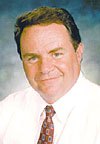As we age, and even for some young people, arthritic conditions take their toll on freedom of jaw movement producing pain and stiffness. Luckily the temporal mandibular joints or TMJ’s are made to last and function well, long after many parts of the body give out. These important joints make possible or aid with speaking, chewing, swallowing, and breathing which are functions of primary importance to our quality of life. Instead of bony parts mingled with hyaline cartilage that does not heal, the jaw joints are intertwined with a type of cartilage made from fibro-connective tissue that can heal and adapt with injury or disease. Even with their great adaptable qualities, however, the TM Joints are susceptible to arthritic bony changes also bone spurs, cancers, and anatomic changes. Should you be experiencing significant chronic daily pain you should be professional examined by a dentist trained in the diagnosis and treatment of TMJ disorders. Some doctors and people are afraid or have heard that if they have any TMJ issues they wouldn’t be able to wear an oral sleep appliance. This is generally not true. By moving the mandible (jaw) slightly down and forward as does a sleep appliance, the TMJ joint space is decompressed reducing nerve impingement often bringing pain relief to the area of the TMJ, facial muscles, and the ear. So a sleep appliance can serve two purposes to treat obstructive sleep apnea and TMJ pain. What are the treatments for arthritic type problems associated with the temperomandibular joint? Unless a tumor or sever disc displacement is involved, surgery is rarely performed. Other treatments include various oral orthotics, anti inflammatories, including steroid injections and prolo therapy; also arthrocentesis (joint lavage), various exercise programs to keep the jaw joints as mobile as possible and maintain vertical range of motion, and other physical therapy modalities. Most seniors deal with mild arthritis of their TM Joints to some degree without much, if any, form of treatment.
Phillip Hall is a practicing general dentist in St. George. He is also head of the St. George Craniofacial Treatment Center,and operates St. George Dental Careers,a successful dental assisting school. He is Board Certified in Dental Sleep Medicine and a Board Certified Diplomate of the American Academy of Dental Sleep Medicine. Appointments for general dentistry or dentures call 656-1111. For sleep apnea appliances or TMJ problems call 634-8338.
